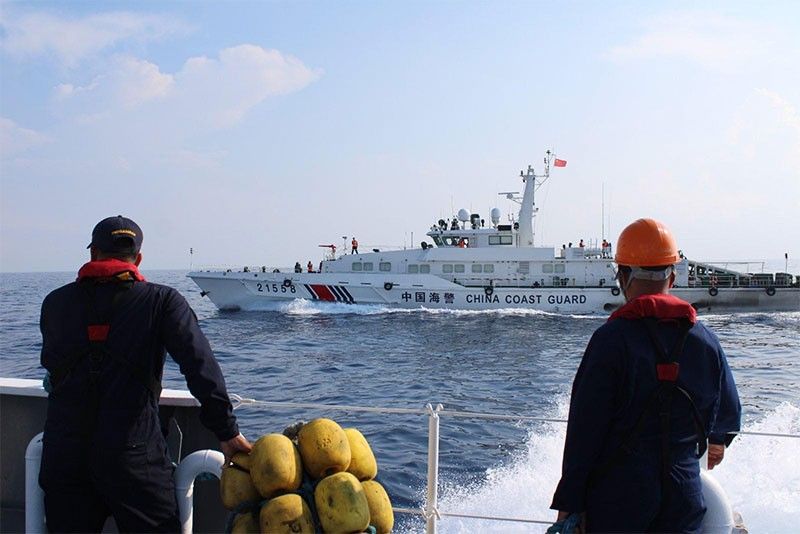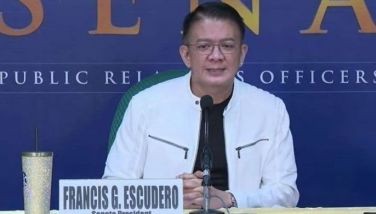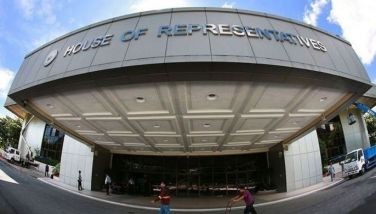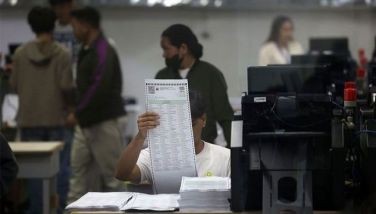Marcos: West Philippine Sea not a ‘figment of imagination’

MANILA, Philippines — President Ferdinand Marcos Jr. declared that the West Philippine Sea is no mere “figment of imagination” in his third State of the Nation Address — words that reflect the Philippines’ continued assertion of its sovereign rights over the West Philippine Sea after a year of flaring tensions with China.
“Ang West Philippine Sea ay hindi kathang-isip natin lamang. Ito ay atin. At ito ay mananatiling atin, hangga’t nag-aalab ang diwa ng ating minamahal na bansang Pilipinas,” Marcos said.
(West Philippine Sea is not merely a figment of our imagination. It is ours. And it will remain ours, as long as the spirit of our beloved country, the Philippines, continues to burn.)
Vowing to raise Filipinos' awareness of the country's maritime rights, Marcos turned to pending legislation, namely the proposed Maritime Zones Act and the proposed Archipelagic Sea Lanes Act, to "make sure that this intergenerational mandate will firmly take root in the hearts and minds of people."
Marcos also thanked the country's armed forces, the Philippine Coast Guard and even fishers in the West Philippine Sea for keeping watch over the country's waters and for their sacrifices.
Direct mention of the tensions in the West Philippine Sea took up only less than five minutes in the president’s estimated 90-minute speech, but Marcos’ pauses between sentences were mostly punctuated by applause and even a standing ovation.
“In our international relations we have faced challenges to our territorial sovereignty, we will assert our rights and interests in the same fair and pacific way that we have always done,” Marcos said.
The president added that proper diplomatic channels and mechanisms under the rules-based international order “remain the only acceptable means of settling disputes.”
The past year has seen tensions in the West Philippine Sea escalate after Chinese vessels' repeated attempts to foil Philippine forces' resupply missions to troops stationed at BRP Sierra Madre in Ayungin Shoal, a warship deliberately grounded there in 1999.
This comes amid China's persistent assertion of its territorial rights over nearly the entire South China Sea, even parts that overlap with the West Philippine Sea or waters in the Philippines' exclusive economic zone.
RELATED: 8 years after South China Sea ruling, Philippines vows to uphold maritime peace
While a 2016 Hague ruling has invalidated China's sweeping claims captured in its so-called nine-dash line, Beijing dismisses this and asserts that Manila is intruding into its waters. Other foreign powers have acknowledged or supported the ruling and have backed the Philippines through statements of support.
Confusion ensued among Philippine officials and lawmakers in April when the Chinese government accused the Philippines of backtracking on its promise to remove the BRP Sierra Madre from Ayungin Shoal as part of a so-called "gentleman's agreement" struck between the two countries.
Former President Rodrigo Duterte later admitted to agreeing with Chinese President Xi Jinping to maintain a "status quo" agreement where the ship would not be repaired and only food and water would be brought to troops stationed there.
Marcos said he was "horrified" about the implications of the deal and that he was effectively rescinding it.
Just a day before the president delivered his SONA, the Department of Foreign Affairs announced that the Philippines had reached an "understanding" with China on the provisional arrangement for the resupply missions to the BRP Sierra Madre.
RELATED: Philippines says has agreed with China on 'arrangement' for Ayungin resupply missions
The DFA said the arrangement was struck after a series of meetings between both sides, including its July 2 bilateral meeting aimed at diffusing tensions in the contested waters.
- Latest
- Trending





























